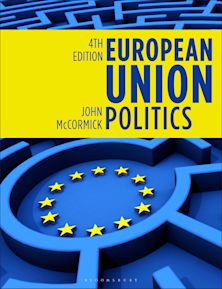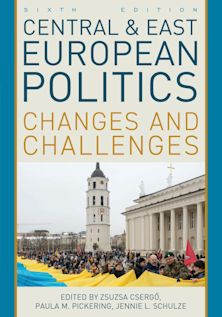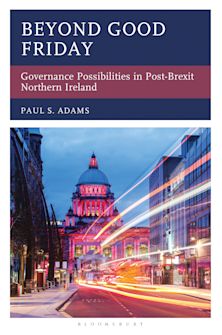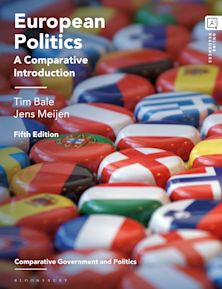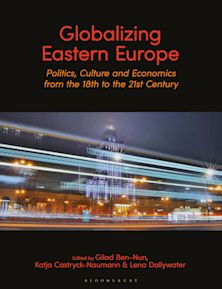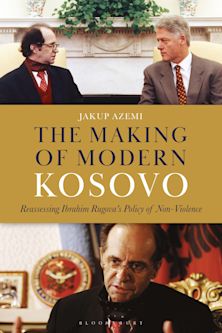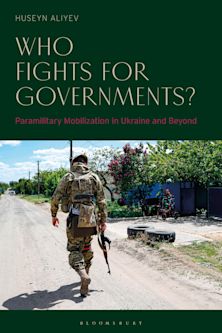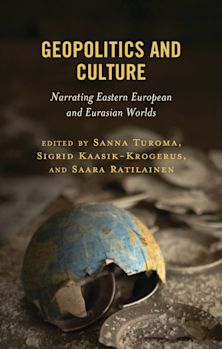- Home
- ACADEMIC
- Politics & International Relations
- European Politics
- Magic in Early Modern England
Magic in Early Modern England
Literature, Politics, and Supernatural Power
Magic in Early Modern England
Literature, Politics, and Supernatural Power
For information on how we process your data, read our Privacy Policy
Thank you. We will email you when this book is available to order
You must sign in to add this item to your wishlist. Please sign in or create an account
Description
This book reconsiders the place of magic at the foundations of modernity. Through careful close reading of plays, spell books, philosophical treatises, and witch trial narratives, Andrew Moore shows us that magic was ubiquitous in early modern England. Rather than a “decline of magic,” this study traces a broad cultural fascination with supernatural power. In the sixteenth and seventeenth centuries, poets, philosophers, jurists, and monarchs debated the reality and the morality of magic, and, by extension, the limits of human power. In this way, early modern English writing about magic was closely related to the scientific and political philosophical writing from the period, which was likewise reimagining humanity's relationship to nature. Moore reads Thomas Hobbes's Leviathan alongside contemporary writing by the notorious witch hunters Matthew Hopkins and John Stearne. He reminds us that Francis Bacon's scientific works were addressed to King James I, whose own Dæmonologie insists on the reality of witchcraft. The fantastical science fiction of Margaret Cavendish, he argues, must be understood within a tradition that includes works like Christopher Marlowe's Doctor Faustus and the peculiar autobiography of criminal astrologer Simon Forman. By considering these disparate works together Moore reveals the centrality of magic to the early modern project.
Table of Contents
Chapter 2: Towards a Definition of Early Modern Magic: Four Conceptual Problems
Chapter 3: Magic and Materialism: Niccolò Machiavelli, Francis Bacon, and Abraham Cowley
Chapter 4: Magical Overreach in Robert Greene and Simon Forman
Chapter 5: Illusions of Power in Doctor Faustus and Francis Bacon
Chapter 6: Witch Trials and Thomas Hobbes
Chapter 7: Margaret Cavendish and the Conquest of the Blazing World
Conclusion
Product details
| Published | May 15 2023 |
|---|---|
| Format | Ebook (Epub & Mobi) |
| Edition | 1st |
| Extent | 192 |
| ISBN | 9781498575522 |
| Imprint | Lexington Books |
| Series | Politics, Literature, & Film |
| Publisher | Bloomsbury Publishing |
About the contributors
Reviews
-
That Moore leads the reader to this dark abyss by the middle of his book is commendable, as his meticulous narrative temperament demands a denouement in the third act. Magic in Early Modern England is a serious book, wherein Moore posits and provides proof that “modernity is obsessed with the acquisition of supernatural power.”
Renaissance Quarterly
-
Modern science and technology are routinely understood as sharp departures from, and as correctives to, a pre-modern fascination with magic. Andrew Moore revises this understanding. Drawing largely on early modern English sources, Moore shows us that men in both worlds have been driven by a common impulse to attain supernatural power over their lives, to account for and relieve distress. This book adds significantly to our knowledge of early-modern thought and social views, and it brings the reader into closer contact with a past world that, with respect to the issue of science and magic, is not past.
Luigi Bradizza, Salve Regina University
-
“Andrew Moore has written a compelling and thought-provoking work that contests the prevalent view of a “decline of magic” brought about through the rise of the modern world with its science and technology. Moore, through detailed and innovative analysis of Early Modern English literature, philosophy, and texts of magical practice, presents the modern world as both crucially shaped by and realized through magic. This argument opens a far more nuanced approach to the interplay between an emerging modernity and the seemingly dark arts of magic and witchcraft.”
Neil Roberts, King's University College

ONLINE RESOURCES
Bloomsbury Collections
This book is available on Bloomsbury Collections where your library has access.













